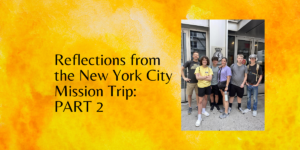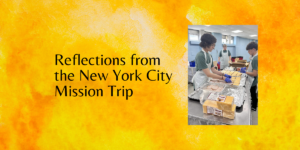July 2 – Fourth Sunday after Pentecost
Proclaimer: Rev. Martha Kearse, DMin
Sermon Series: The Ten Commandments for the 21st Century: The Calling of Wisdom
Sermon: A Rose, By Any Other Name
Scripture: Exodus 20:7, Proverbs 8:4-11, Matthew 16:13-20, Acts 17:23
I always hear her voice as petulant, that teenager, out on the balcony.
Romeo, Wherefore art thou ‘Romeo’?
Tis but they name that is my enemy;
Thou art thyself though, not a Montague.
Nor arm, nor face, nor any other part
Belonging to a man. O! be some other name:
What’s in a name? that which we call a rose
By any other name would smell as sweet;
So Romeo would, were he not Romeo call’d,
Retain that dear perfection which he owes
Without that title. Romeo, doff thy name;
And for that name, which is no part of thee,
Take all myself.
She believes it, you see. She believes that Romeo can just not be Romeo, can just vie up being a Montague. Why not? It’s just words—just letters on a page. And Romeo, not one whit smarter than his 14-year-old girlfriend, buys in.
I take thee at they word. (he says)
Call me but love, and I’ll be new baptiz’d;
Henceforth I never will be Romeo.
Juliet: What man art thou, that, thus be-screen’d in night,
So stumblest on my counsel?
Romeo: By a name
I know not how to tell thee who I am;
My name, dear saint, is hateful to myself,
Because it is an enemy to thee:
Had I written, I would tear the word.
Dear sweet morons that they are, Romeo and Juliet actually believe that saying they will give up their family names, and thus no longer being subject to the feud between their families, means that they are free to express their love to each other. Bill Shakespeare knows better. Bill knows how names work. That far beyond just indicating which person is being addressed, a name connotes culture, wealth, family, standing, class, history, prospects, and even romantic possibilities. The nature of names, in fact, is one of the core themes of the play—the two lovers are star-crossed because, try as they might, they cannot escape the facts of their identities, their families—their names.
The naming of things is a central human activity. It is how we come to understand the world. We start out with the simple concept that things have names. Some of us learn this more quickly than others. My parents tell me that for the first couple of years of my life, my sister supplied a steady stream of dialogue for me and I rarely spoke, except to repeat what she had told me to say. When I did begin to talk, I talked only to them, so that they got a constant barrage of toddler questions and statements, and people at church thought I might be slow. I have had the pleasure of watching several children awaken to language, and I find that there are a few distinct styles. Some of them take on the task of vocabulary—these tend to be the first children, or the first girl child, but not always. We have one in our nursery right now. Before she was even a month old, she began the task of watching lips and responding. She is dedicated to the task of figuring out what the people around her are doing and to making it happen. These children talk early—they gather vocabulary daily like toys at Christmas and tend to be precise in their speech.
Then there are those who, really, just can’t be bothered. They figure out how to get what they want with gestures, and by being at the right place at the right time. It’s possible that their brains are wired more for pictures, or actions, but whatever the reason, they take their time with the naming of the universe. For them, it is not as important to know that the round thing on the counter is called “cookie,” as it is to figure out how to climb up there and get it without being caught. Others acquire language as phrases or even sentences. These are the children who say nothing for three years, and then wake up one day and say, “Mother, could you hand me a fork, so that I may partake of my macaroni and cheese?” These days, many parents use American Sign Language early on with children, so that even if they don’t have the spoken words they need, they begin to name the world with meaningful motions and gestures. This is what we do, we humans; we name things. And, at some point, we learn that everyone doesn’t call things the same thing that we do. To quote Steve Martin, “It’s like the French have a different word for everything!” And so a cat in a hat can be une chat en chapeau, although at that point, it is probably smoking a cigarette and looking at the world with disdain.
Whether we learn many languages or just stick with the one we were born into, we humans find language a comforting system—once we can give a name to something, we have some control over it, we can understand it. And so we name hurricanes. In 1969, Hurricane Camille swept across the lower half of the continent, and when it reached the Appalachian mountains, dumped so much water that it created actual walls of water. One of my parents’ friends, who was a trucker, was killed when his 18-wheeler was hit by a wall of water coming down off the mountain 40 feet high. We name asteroids and comets. We name obscure sea creatures, which live at depths which are, literally, unfathomable. We name minerals and gasses and elements and the things that make those elements up. We name things seen and unseen—we even name things we only know about because of absence, like black holes or dark matter. It’s comforting to name things. Names have power—they bind a thing to meaning, they encapsulate the parameters of the thing. A cat cannot be a dog—an atom cannot be an elephant—everything stays in its place and becomes understandable and even controllable to a certain degree.
I heard an NPR story this weekend about an asteroid call “Apophis,” which is a near-Earth asteroid that has a slight chance of hitting the earth in 2036. The scientist who was talking about this asteroid said that studying it had helped them to discover something called “key holes,” which is the name for the sweet spot where the asteroid passes in 2029, which sends it on the perfect trajectory to hit the Earth in 2036. What he said was that finding this asteroid and studying its trajectory, led directly to the discovery of key holes, which enabled scientists to begin talking about what we could do about an asteroid 200 yards across, traveling at about 25 km/sec. What they found is that with the technology we have right now, we could make sure this asteroid does not hit the Earth with the clever use of some stuff we invented after watching Star Trek. We gain power over an object that could obliterate an entire city—really most of a state—by beginning with giving it a name.
I think this particular admonition in the Decalogue is one of the most misunderstood of the list. We tend to think this one is about cursing. We tend to think the “name” of God is “God.” And so we think if we avoid saying the word “God” in the wrong context or with the wrong tone of voice, we’re good! Done! That commandment is off the list! Whew! Except some bad news: the name of God isn’t “G-O-D.” Now we know this. We’ve been around. We sang “El Shaddai” with Amy Grant in the 80’s. We know that the Bible uses several titles for God, including “Elohim,” which is simply the plural for “divine persons,” and “Adonai,” which is “Lord;” we know that the tetragrammaton, YHWH, is not really a name, but a designation that is unspoken by readers of Hebrew, who supplant it with “Adonai.” This designation is so much not a word, that in Hebrew it doesn’t even have its own vowel points—it uses the vowels of “Adonai,” which, again, is moot as it is not spoken aloud. Think about the context of the telling of the stories of our God: the people of Israel are in a constant state of being surrounded. There is a brief, 100-year period during the reign of David and his sons where Israel rules itself; beyond that, it is always the small, back-water property of a larger society. Its people have been subject to slavery, and captivity, speaking their own language only at home, but having to speak the language of their conquerors everywhere else. And those who rule them have many, many gods, with many, many names! Ra, Osiris, Nut, Anubis, Horus, Isis, then Ba’al and Mithra, then Zeus, and Mercury, and Hecate, then Jupiter, Juno, Minerva, Venus and Apollo. They’re everywhere! They each have their characteristics and their demands; they each rule over a very specific element of the world and have specific jobs to do. They are quantifiable, limited, nameable.
And then there is the God who visits Abraham. Who wrestles with Jacob and, despite Jacob’s demands for the name of the being he wrestles, will not say, but defeats Jacob and changes HIS name to one which means “Wrestles with God.” There is the God who descends into a bush, making it appear to be on fire, and speaks to Moses. When Moses says, “Who shall I say sent me to do this thing which Pharaoh is going to totally HATE?” God’s answer is, “I am who I am,” which is both infuriating and completely unhelpful. This commandment is one that is most specifically about limitations: knowing ours, and respecting the fact that the God we worship has none. This commandment is God’s way of saying, “You do not know me. You cannot own me. You cannot define me. You cannot limit me.” It is a further explanation, really, of the first commandment: “I am your God.” God makes that commandment and then goes on to explain, “Let me tell you what that looks like. You can’t make an image of me, because I contain much more than a crow or a lion or an eagle, or any combination thereof; you can’t give me a name, because a name is a definition and I defy definition. I am beyond definition. Try to box me in, and you will find that your efforts will fail. Understand your limitations, and we’ll get along fine.”
Of the commandments, this one may be the one we resist the most. I remember in college, my roommate and I were talking theology. We did not do this often—we had, over the four years, each
gone on different paths. Mine tended to be with the BSU, and hers tended to be academic. She was Phi Beta Kappa, and I learned early in our friendship that I could not compete with her academically. At that particular time, she had asked me, basically, why I spent so much time doing what I did. Hanging out with religious types, serving as a summer missionary. At the time, I had no sense of call to ministry, although I think it was tugging at me even then. I don’t remember exactly what I said, but I know that she replied that she didn’t ask God to do things in her life—she felt like she was responsible for her own success or failure; that she was competent to take care of most of the things that happened in her life. I think, if there is any danger for us in this church, it is that one. We don’t tend to be people who try to take on the role of God in other people’s lives, condemning them to hell or telling them how to live their lives. This church is made up of people who respect boundaries way too much—most of us wouldn’t dream of interfering in the life of another person in that way. What we tend to do is to commit that same sin, only on ourselves. We expect much of ourselves, demanding that we solve the world’s problems by ourselves, that we help whoever asks for help, that we have some kind of debt to pay with our intelligence and our resources and our labor that cannot be paid any other way. This, my friends, is the blasphemy of taking the Lord’s name in vain. We are not God. We don’t have to be God. We don’t know what’s best for everyone else. We don’t have to solve everyone else’s problems. We are not alone in the universe and—here is the kicker—we are not capable of doing anything more than the tiniest fraction of what needs to be done in the world.
Well, thanks for the motivating talk, Martha! We’re out of here! I admit—it’s a tough one. We’re called to love our neighbors, but we also have the task of recognizing our limitations, and of handing over to God that which we are not capable of completing. It is for this very reason that we should be hanging out with other people of faith—when we were in NYC, we challenged the young people to look for God out in the world—to even take pictures of times when they saw God at work. Some took pictures of animals in the park; some saw someone else helping another person; some heard music or saw art. It was Ramadan while we were there—I think it was the last week of Ramadan. And each day, on our way to and from the subway station, we passed a mosque. Each evening, the people of the neighborhood who were Muslim gathered after dark for the Iftar, the breaking of their daily fast. That was the work they had to do which we cannot do. Metro Baptist in NYC has a roof garden which it uses to feed fresh vegetables to people in the Hell’s Kitchen neighborhood. They have work to do which we cannot do. God’s Love We Deliver makes and delivers meals for people who cannot leave their homes because their illnesses have made them infirm, or because their immune systems are compromised. They have work to do which we cannot do. And there is more—much, much more—work to do than we can imagine. We are not God, and the best possible news is that we do not have to be God. God is God. God is El Shaddai, God Almighty. God is Everlasting, God is Father and Mother, God is Wisdom and God is Love.
Our Biblical story is full of names and naming. Adam and Eve name the animals; Abram and Sarai become Abraham and Sarah; Jacob becomes Israel; Simon becomes “Petros” or “Rocky.” And Yeshua, a nice boy from Nazareth, becomes The Anointed One, The Christ. But our ability to quantify, and to control, with names ends before we get to the God of all the universe. It is no accident that the next commandment is about rest—the admonition to face our limitations, and let someone else have a turn. God is—and that is the sum total of what we, as human beings, can know.









